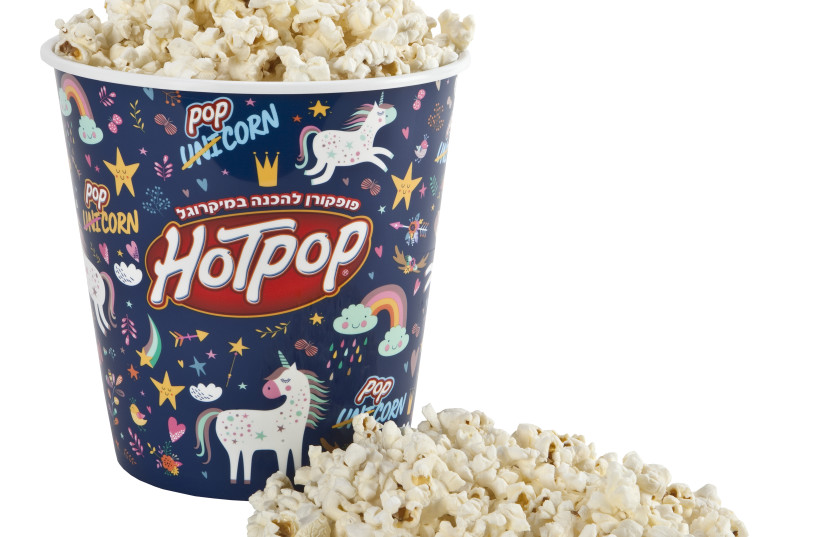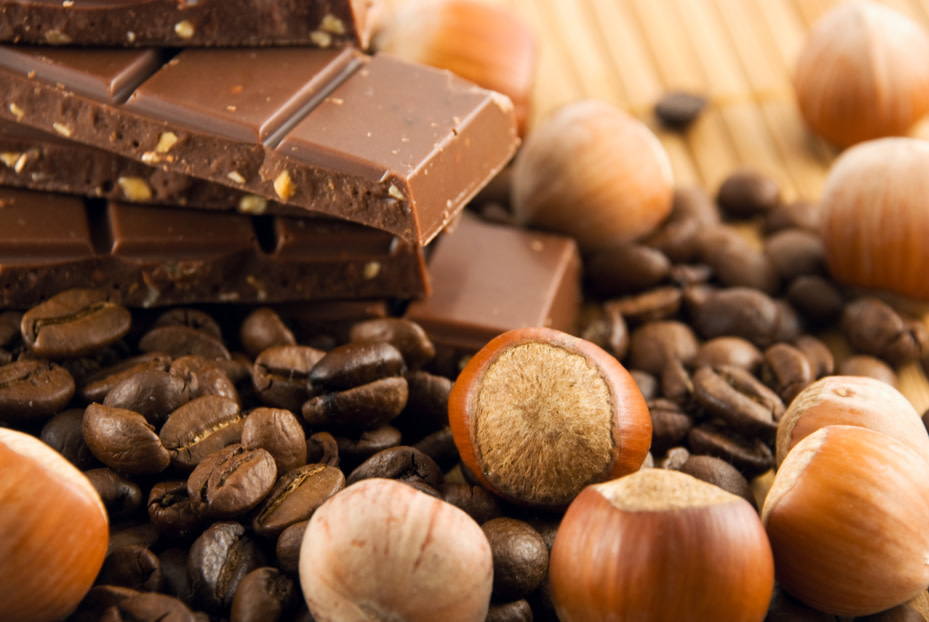Israelis are going through challenging times as the country is engulfed in war, and everyone has their own way of dealing with it.
Some are staying at home more, while others are busy with work and activities outside. Some of us are caring for children, supporting elderly parents, or simply existing in our own homes.
At this time, food can be a source of comfort for some and a challenge for others.
Now is not the time to stick with strict diets. It's okay to enjoy food, find comfort in it, and cook and bake without guilt. Having quality food at home can help us make better choices and contribute to our overall well-being.
Here are some examples of foods with quality ingredients, including sweet, salty, and spicy options, that require minimal preparation and are not highly processed.

Corn and popcorn
Whole grains are well-known for their health benefits. Corn, similar to wheat and rice, is a grain, but we eat it differently, using the entire corn cob as a whole, unprocessed grain. This means including the shell, endosperm (starch), and germ. Corn on the cob and canned corn without added sugar are both great choices, loved by both and kids and adults both. You can also enjoy popcorn made at home with a bit of oil.
Popcorn is made by heating corn kernels to 220 degrees Celsius, causing the water inside each kernel to turn into steam, creating pressure that pops the kernel. Please be cautious and avoid giving popcorn to children under five to prevent choking.
Boiled chickpeas, edamame, and more
Boiled chickpeas seasoned with ground black pepper or other spices can be a satisfying and nutritious snack. You can buy chickpeas dry and cook them or purchase canned ones with lower sodium content. Hummus, a staple in Israeli cuisine, is rich in protein, dietary fiber, B vitamins, and essential minerals like iron, zinc, and magnesium.
Soybeans, part of the legume group, are served as edamame in their pods and are a delightful option. They are high in protein, fiber, vitamins, and minerals. For those following a vegetarian or vegan diet, legumes like chickpeas and soybeans are excellent sources of protein. It's important to note that the body needs all essential amino acids, which are organic compounds found in every cell, for proper functioning.
Animal-based proteins typically provide all these essential amino acids in the right proportions, making them "complete proteins." In contrast, plant-based proteins are often incomplete, so those avoiding animal products must carefully consider the quality of protein they consume. Soy protein is recognized as high-quality protein according to the PDCAAS index, which assesses the combination of amino acid quantity and quality, as well as protein absorption in the body. Soybeans are also rich in vitamins, minerals, dietary fiber, omega-3 and omega-6 fatty acids, and low in saturated fat compared to meat.
Surprisingly, peanuts belong to the legume group, much like chickpeas and soybeans. Opt for peanuts in their hard, rough shells as they are salt-free and encourage slower eating.

Nuts and almonds
Walnuts, hazelnuts, almonds, and cashews are not only delicious but also packed with nutritional value. These nuts are predominantly composed of unsaturated fats, about 60%, which are beneficial for maintaining healthy blood lipid levels, reducing the risk of atherosclerosis, and thus lowering the risk of heart disease.
Additionally, nuts are rich in fat-soluble vitamin E, essential for the immune system and antioxidative processes, protecting cells and slowing down their aging. Combining nuts and almonds with fruit consumption helps control blood sugar levels. It is recommended to incorporate a variety of nuts into your regular diet to reap their benefits.
Dark chocolate
Healthy chocolate may seem like a dream come true. Studies mostly refer to dark chocolate with at least 65% cocoa.
Cocoa contains flavonoids, which have antioxidant properties. Recent research suggests a link to improved blood vessel function, lowering the risk of heart disease and high blood pressure. Dark chocolate contains more flavonoids than milk or white chocolate. However, most evidence supporting chocolate's health benefits comes from short-term and uncontrolled studies, so further research is needed to confirm these findings.
Dried fruits
Dried fruits offer a nutritional punch similar to fresh fruits but with some differences. They have a high sugar concentration due to the reduced liquid content compared to fresh fruits. Because of this, dried fruits can provide valuable energy, especially for those with reduced appetite these days, but their small size can lead to overeating.
Naturally dried fruits retain most of the vitamins and minerals found in fresh fruit. It's advisable to choose dried fruits without added sugar.
